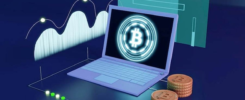The US Securities and Exchange Commission issued a rare no-action letter, confirming that it will not treat tokens linked to blockchain-based decentralized physical infrastructure networks, or DePINs, as securities.
message, Released On September 29 by the SEC’s Division of Corporate Finance, it was stated that the agency would not pursue enforcement against the DoubleZero Foundation if the group’s planned transfers of its 2Z token proceeded according to the terms set forth in a legal filing made about five days ago.
It’s one of the clearest statements yet from the SEC on how it views tokens used in decentralized infrastructure projects under the administration of President Donald Trump, which has promised to create friendlier conditions for cryptocurrency companies looking to base themselves in the United States.
At the time of this post, the market cap of DePIN tokens was $33 billion, according to Data From Coin Market Cap.
The SEC says DePIN tokens have no security features
On September 25th Deposit With the SEC, DoubleZero’s attorney argued that the tokens were functional rewards for participants in its network, not speculative investments. On Monday, the Securities and Exchange Commission agreed that the arrangement does not fall under securities laws.
SEC Commissioner Hester Peirce wrote a statement explaining that DePIN tokens are fundamentally different from traditional fundraising mechanisms.
“These projects allocate tokens as compensation for work performed or services provided, and not as investments with the expectation of profiting from the entrepreneurial or managerial efforts of others.” He said.
Pierce acknowledged that the agency’s traditional test for identifying securities, the Howey test, was not appropriate for DePIN structures. According to her, tokens like 2Z are not shares of stock or claims to profits, but exist to encourage developers to build infrastructure.
“DePIN projects do not sell or distribute tokens to fund additional development from investors attracted solely by the prospect of investment returns. Instead, DePIN networks programmatically distribute these tokens to users who participate in the network in accordance with the network’s rules,” Pearce’s statement said.
DePIN tokens are just rewards, not profitable securities
DoubleZero is a foundation in the Cayman Islands created to support the development, decentralization and adoption of its namesake network. Its system uses blockchain technology to coordinate and reward people who contribute real-world infrastructure resources such as Wi-Fi networks, sensor networks, storage, or even power grids.
Ordinary people on Demin It can supply devices, such as routers, security cameras or solar panels, that can be controlled by large companies that own the operating systems. As a result, they are compensated with tokens when others use what they offer.
A company filing dated September 25 explained that 2Z tokens will be distributed in two ways: first, as compensation to network providers for high-performance connectivity; Second, as compensation to resource providers who calculate payment amounts for those providers.
Commissioner Pearce reiterated that “treating such tokens as securities would inhibit the growth of distributed service provider networks.”
The SEC agreed with this view, noting that the tokens were not designed as a class of securities and therefore did not require registration.
“The economic reality of DePIN projects is fundamentally different from the capital-raising transactions that Congress charged this committee to regulate,” her letter said.
Austin Videra, co-founder of DoubleZero and former chief strategy officer of Solana, said the SEC’s no-action letter is proof that the cryptocurrency industry can deal with regulators “and still move quickly.”
SEC enforcement is taking steps backwards under the Trump administration
The SEC, led by new Chairman Paul Atkins in the Trump 2.0 administration, has scaled back what was once called “regulation by enforcement” in digital assets, along with imposing clearer frameworks to attract companies to America.
During a round table interview With the CFTC, which met on the same day that DePIN’s no-action letter was published, Paul Atkins stated that cryptocurrencies are the top priority for financial watchdogs.
The Securities and Exchange Commission and the Commodity Futures Trading Commission (CFTC), two of the main financial regulatory bodies in the United States, are working together to divide oversight responsibilities in the digital asset market.
Get visibility where it matters. Advertise on Cryptopolitan Research and connect with the best crypto investors and builders.





